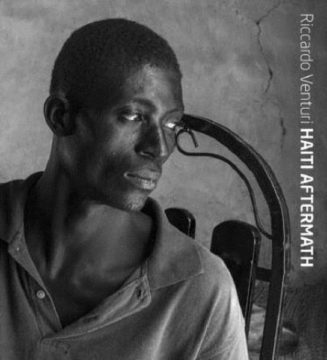Riccardo Venturi first visited Haiti a few days after the earthquake in January 2010. Everywhere was chaos, death and destruction. The capital, Port-au-Prince was in ruins, fires lit up the dark, terror-stricken nights and thousands of displaced people, shocked and shattered, drifted through its streets. The earthquake had been a catastrophic 7.0 on the Richter scale and over the next two weeks more than fifty large aftershocks were recorded. Some three million people were affected and the death toll exceeded 200,000 people. For an already poverty-ravaged country this was a disaster of massive proportions. Humanitarian appeals led to many countries pledging funds and dispatching rescue, medical and other support personnel. Yet chaos ensued. Port-au-Prince’s morgues were overwhelmed with tens of thousands of bodies and delays in aid distribution led to anger amongst aid workers and survivors, and to looting and sporadic violence. After only twelve days the UN announced that the emergency phase of the relief operation was drawing to a close, yet for many Haitians the situation remained desperate. When Venturi revisited five months later he found that little had changed. As he noted: ‘Haiti lives on in utter precariousness, abandoned and waiting, in a time suspended outside time.’ Riccardo Venturi visited Haiti several times following the earthquake to observe the cconsequences of this very human tragedy and in ‘Haiti Aftermath’ he gives us a moving and powerful account of one of the most devastating natural disasters of recent years.
- Veröffentlicht am Freitag 1. April 2016 von Lewis, Dewi
- ISBN: 9781907893797
- 172 Seiten
- Genre: Film, Fotografie, Hardcover, Kunst, Softcover, TV, Video
